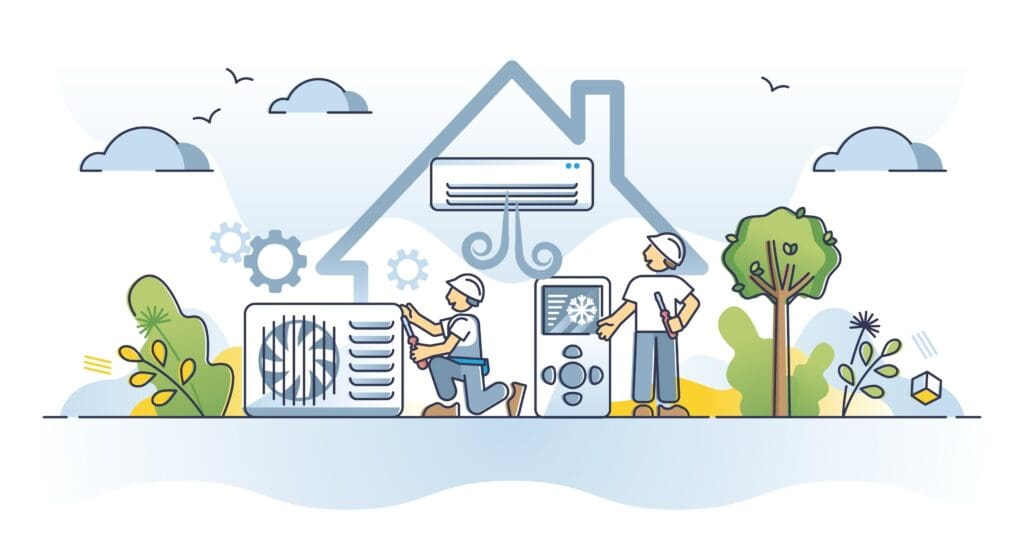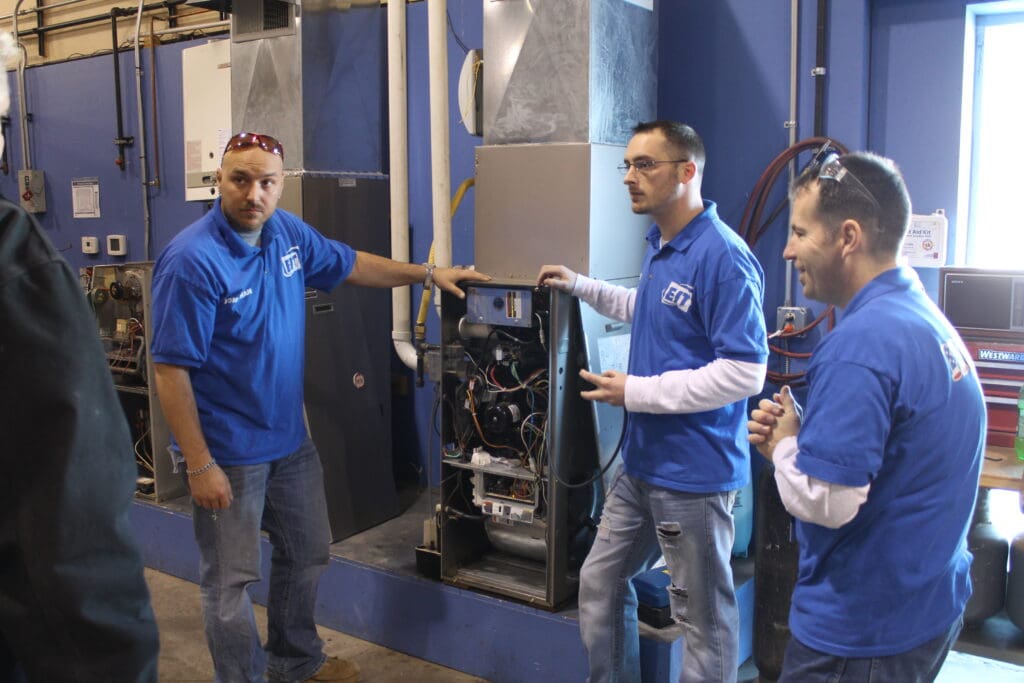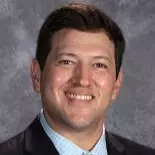A homeowner’s heating, ventilation, and air conditioning system is the backbone for optimal comfort in their home. Problems may arise during the lifespan of an HVAC system, but before calling a technician, there are several tips to help troubleshoot those issues. Homeowners will be able to identify faulty HVAC symptoms and follow a step-by-step process to go back to a comfortable home.
What Is an HVAC System and What Does It Do?
An HVAC system is a home’s heating, ventilation, and air conditioning system. An HVAC’s heating and cooling system allows a comfortable environment for a homeowner’s living space. The HVAC system allows a home to stay warm during the winter and cold during the summer.
Your HVAC system includes components such as equipment like air purifiers, heat pumps, control systems, and smart thermostats. These pieces of equipment work in tandem to make the HVAC system run properly.
Understanding your HVAC system may be daunting at first, but equipment explanations and learning to identify problems as they show up will save one more headache for homeowners.
How Does an HVAC System Work?
- How Your HVAC System Provides Your Home With Warm Air. For the heating element of the HVAC system, the system will warm the air and the blower pushes the warm air into the duct system for distribution throughout the home.
- How Your HVAC System Disperses Cool Air Throughout Your Home. In terms of the HVAC’s cooling responsibility, once the AC is running, the outdoor unit will pull hot air from outside and pass it over coils. After that, the system’s refrigerant cools the air even more, then it finally disperses the cold air into the home.

How Does an HVAC System Work?
How to Fix Common HVAC Problems
1. Your AC Won’t Turn On
Noticing your home’s AC won’t turn on is a surefire way to induce worry. When this issue happens, it may be an issue with the thermostat, circuit breaker, or condenser. Resetting the thermostat is often the only step needed to get your AC back running. Other options include resetting the circuit breaker in your home and checking if the condenser is correctly plugged in.
2. Your AC Is Constantly Turning On and Off
If you notice your AC is turning on and off, this means your HVAC system is short-cycling. Short cycling can cause major issues like costly repairs in the future if neglected. Reasons for this can include:
- Dirty air filters
- Dirty condenser coils
- Improperly located thermostat
- Frozen evaporator coil
- Oversized air conditioner
- Low refrigerant/freon
First, homeowners should look to clean their air filters. Secondly, make sure the condenser unit is clear of debris. If these steps don’t prove fruitful, contacting a professional is the necessary next step.
3. Odd Noises
Homeowners may notice various and unusual odd noises stemming from their AC unit. Common odd sounds that could indicate issues are a plane launching noise, whooshing sounds, or a soft clicking. Troubleshooting this problem starts with checking for any loose blade placement inside the air conditioner. Also, check for any loose bolts or screws, this may eliminate those noises. If noises persist, homeowners should contact a professional.
HVAC Maintenance Tips To Prepare Your Home for Summer
Read on to learn how to prepare your HVAC system for summer and when you should contact a professional HVAC technician.
4. Poor Airflow
If the airflow throughout your home becomes noticeably poor, common causes for this issue include:
- Dirty furnace filters
- Blocked, improperly installed, disconnected, or crushed duct runs
- Duct leakage
- Not enough return air vents
- Undersized vents or oversized ductwork
Homeowners should start by making sure their furnace filters are clean and the filters used are properly rated MERV filters. Many of these other routed issues will require further help from a professional.
5. Dirty Evaporator Coils
The symptoms of a dirty evaporator coil will cause your HVAC system to have inadequate cooling, longer operating cycles, ice buildup around the coil, higher energy bills, and poor indoor air quality. Making sure the evaporator coils are regularly clean is one of the best ways to keep your HVAC system running smoothly. If the task is too tall, contacting a professional is recommended.
6. Unpleasant Smells
The unpleasant smell coming from your air conditioner can range from a dirty sock to the smell of trash, and the smell of burning or exhaust. The next steps to take should be:
- Checking the drain pan
- Checking for a frozen evaporator coil
- Spotting for any excessive moisture in air ducts
- Looking for a blocked condensate line
- Confirming your air conditioning unit is the correct size for your home
For any task of these that leads to non-accomplishable work, homeowners should reach out to an HVAC specialist.

HVAC Technician Training Programs
7. The Air Filter Is Clogged
When an HVAC system’s air filter is clogged, the home’s unit overheats and overwork itself. Homeowners should start by identifying if the air filter is clogged, assessing if they can handle it themselves, and if they can’t, they can get in touch with a professional HVAC technician in their area.
8. The Furnace Lost Power
The furnace part of your HVAC system is tasked with heating your home. If this aspect of your HVAC system isn’t working properly, homeowners can follow these steps:
- Turning off the furnace power at the circuit breaker
- Opening the furnace access door to locate where the circuit board is located (Fuses are typically small, plastic, and colored)
- Examine with a flashlight to determine any burning or internal damage
- Take the fuse to the hardware store to find a matching replacement
- Install the new fuse, then restore power to the furnace
If the furnace is now running properly, the issue was most likely the fuse.
9. Failed Capacitor & Condenser Fan
Often a failed capacitor within your HVAC system will cause the fan to stop running. Homeowners can usually tell this is the issue when the capacitor is visually swollen. Give the fan a push to see if it will start working again. If not, the motor might have failed which will require a visit from an HVAC technician.
10. Your AC Is Having Drainage Issues
When your air conditioning is having drainage issues, homeowners may notice a musty or moldy smell in or around the AC unit. There also might be standing water or water damage near the indoor unit. If the homeowners are unable to clear away any noticeable debris, reaching out to an HVAC professional will take care of the issue from there.
11. Thermostat Malfunction
If the thermostat connected to your home’s HVAC system is malfunctioning, some recommended steps to take should be trying the circuit breaker, replacing the thermostat batteries, and looking out for any loose wiring. Once these steps have been completed, and issues are still prevalent, contact an HVAC specialist.
Your home’s HVAC system has many working components that are necessary to effectively work. Diagnosing the wide array of issues, and the components related to them, and trying recommended troubleshooting tips can save time and determine the necessary next steps.
Become a Certified HVAC Technician
The Erie Institute of Technology offers reputable classes that help young professionals become HVAC technicians. The skilled training program at EIT will help anyone looking to become an HVAC expert with a versatile skill set. Visit the Erie Institute of Technology website today to become a professional in repairing and installing HVAC systems.
About Author:

Ross Aresco
CFO
Ross Aresco is the CFO of Erie Institute of Technology. Erie Institute of Technology (EIT) is an Erie Pennsylvania technical/trade school providing training programs for medical, computer, electronics, manufacturing, and technology careers. EIT offers programs in many different areas to suit your interests and talents.
